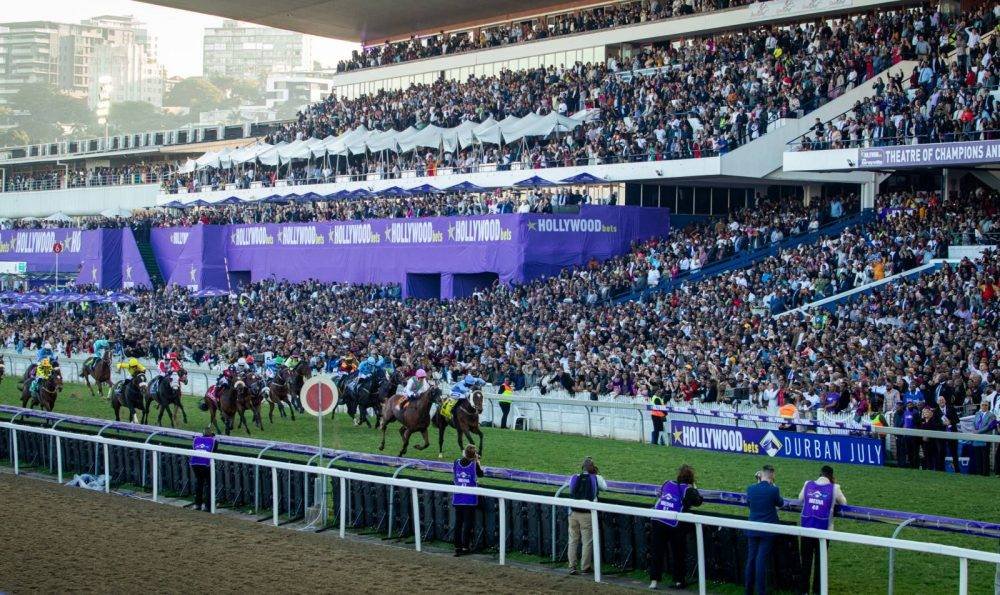Each year on the first Saturday of July, South Africa’s most anticipated sporting and social event, the Durban July, captivates the nation. This cultural jamboree has evolved beyond a mere horse race, serving as a mirror to the country’s aspirations, divisions, and contradictions.
The Durban July is renowned for its dazzling display of high fashion, high stakes, and high society. With an impressive injection of over R150 million into the local economy, the event significantly boosts jobs across fashion, hospitality, and entertainment sectors.
The Greyville Racecourse, a historic venue framed by the Warwick Triangle, Block AK, and Berea, has a rich history that reflects the nation’s past, transitioning from a symbol of colonial and apartheid exclusion to a vibrant cultural hub.
A Legacy of Change
Originally influenced by Royal Ascot in the 1920s, the racecourse became a bastion of racial segregation by the 1940s. Today, the event celebrates diversity, with notable figures like Sadha Naidoo, chair of Gold Circle Horse Racing and Gambling, leading the charge.
However, the event’s glamour contrasts sharply with underlying issues of exclusion and inequality. While luxury marquees host affluent guests, working-class punters line the fences, highlighting the ongoing disparities within the community.
Political Moments and Safety Concerns
The Durban July is also a platform for political expression, as seen in the infamous “Zuma Whisky Incident” of 2009, which underscored the intersection of politics and social gatherings. Safety concerns, including theft and harassment, persist, and many locals view the event as more disruptive than enjoyable.
A Unique Experience
The festivities begin at dawn in Summerveld, where elite racehorses prepare for the day ahead. As the horses make their way to Greyville Racecourse, the atmosphere shifts from anticipation to excitement, culminating in a spectacular grand gallop.
The July showcases an eclectic mix of identities, from Zulu regalia to European luxury brands. It serves as an unofficial runway for South Africa’s diverse cultures, raising questions about representation and profit within the industry.
Hollywoodbets, the title sponsor since 2020, has transformed the racecourse experience, emphasizing a celebration of South African music and lifestyle. “This year’s Hollywoodbets Durban July is more than just a race; it’s a full cultural experience,” said spokesperson Zandile Dlamini.
A Platform for Transformation
The Durban July stands as a symbolic stage for both the city and the nation. Its contradictions reflect the broader societal landscape dazzling yet divided, aspirational yet uneven. With effective leadership, the event could foster true transformation for both the racing industry and South African society.
As the excitement builds for this year’s main race featuring 18 runners, the favorite, Eight On Eighteen, is poised to make a strong showing. The event will run over 2,200 meters, with champion jockey Richard Fourie at the reins.
As Durban prepares for another unforgettable edition on Saturday, July 5, one thing is clear: the Durban July remains a powerful metaphor for South Africa. What we choose to see glamour or grit depends on our perspective.
Safety Reminder: Attendees are encouraged to celebrate responsibly. Don’t drink and drive consider using Uber for your journey home.
